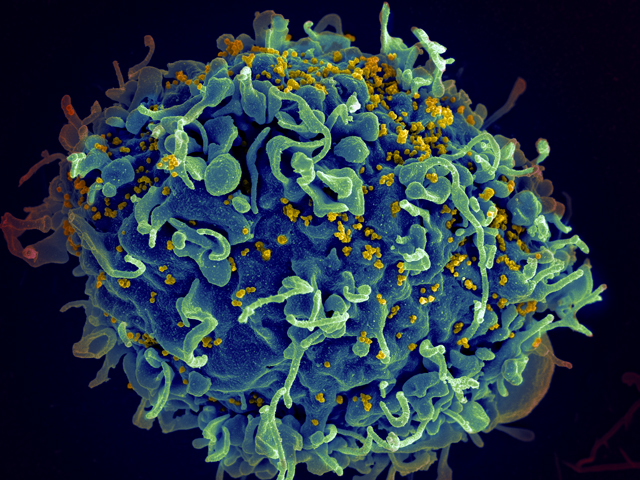
CHAPEL HILL, NC -UNC School of Medicine’s Anne Lyerly is addressing the urgent need for effective HIV prevention and treatment for the estimated 1.5 million women worldwide with HIV who give birth each year.
Lyerly, associate director of the UNC Center for Bioethics and associate professor of social medicine at the UNC School of Medicine, is also an obstetrician/gynecologist who studies ethically complex clinical and policy issues related to women’s reproductive health.
In the August issue of the Journal of the International AIDS Society, Lyerly addresses the lack of research of HIV-positive pregnant women and pregnant women who are at risk of contracting HIV, which has “led to a dearth of evidence to guide safe and effective treatment and prevention of HIV in pregnancy,” Lyerly wrote.
In the research on the HIV-positive pregnant women that has been done, most outcomes focus entirely on the health of the fetus. Pregnant women are excluded from the vast majority of studies, including studies on how to best prevent HIV.
This lack of research has resulted in “major gaps in understanding how best to address the health needs of pregnant women living with or at risk for HIV,” she said. To help address these gaps, Lyerly is leading the PHASES Project, a multi-institutional grant of more than $3 million from the National Institutes of Health to develop guidance for ethically advancing HIV research in pregnant women.
The study involved interviewing 62 HIV clinicians and investigators to determine what HIV experts and researchers perceived as barriers to conducting research with pregnant women. While many researchers were U.S.-based, nearly half of those researchers conducted their studies internationally, primarily in Sub-Saharan Africa.
“Investigators face numerous challenges to conducting needed HIV research with pregnant women,” Lyerly said. “Advancing such research will require guidance regarding ethical and legal uncertainties, incentives that encourage rather than discourage investigators to undertake such research; and a commitment to earlier development of safety and efficacy data through creative trial designs.”
The complex ethical concerns about conducting research on pregnant women stem, in part, from a “catch-22” dilemma: “limited safety data on HIV-related drugs in pregnancy sparks concerns about unknown potential maternal-fetal exposure risks, which leads to reluctance to study pregnant women, in turn perpetuating the lack of safety data that could inform next steps for research,” Lyerly said.
There are also legal concerns. Many investigators found it difficult to interpret federal rules for research involving pregnant women, making it even more difficult to conduct research. Some investigators also reported that these studies were often more cost-prohibitive, both in terms of the research, as well as potential associated care.
“The long list of challenges may seem discouraging, but there is good news,” Lyerly said. “Our consultations suggest that evidence gaps for the HIV response in pregnancy are due neither to lack of will among investigators nor their failure to recognize the research and clinical needs of pregnant women. Rather, these gaps are largely a function of questions, disincentives and barriers in the wider research environment, many of which we can and need to navigate in order to fairly address the health needs of pregnant women living with or at risk for HIV and their children.
“While these challenges are significant, they are not insurmountable.”
>Research for this study was funded by the National Institutes of Health, the National Institute of Allergies and Infectious Diseases, and the University of North Carolina at Chapel Hill Center for AIDS Research.
In addition to her work addressing the lack of HIV research in pregnant women, Lyerly currently has a $1.7 million Wellcome Trust-funded project to address the complexities of including pregnant women in Zika research and vaccine development.
###
Media Contact
Caroline Curran
[email protected]
984-974-1146
@UNC_Health_Care
The post Roadblocks to research: UNC bioethicist addresses lack of HIV studies in pregnant women appeared first on Scienmag.





